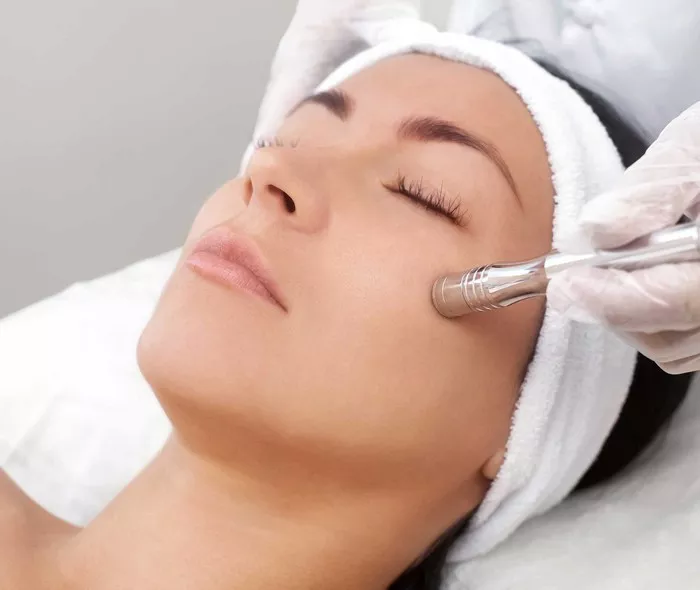Achieving smooth, youthful skin is a goal shared by many. As a result, numerous cosmetic procedures have emerged to help individuals attain their desired complexion. Two popular options for skin rejuvenation are microdermabrasion and hydrodermabrasion. Both treatments aim to exfoliate the skin and improve its texture and appearance. In this article, we will explore the key differences between microdermabrasion and hydrodermabrasion, their respective benefits, considerations, and help you decide which might be better suited to your skincare needs.
Understanding Microdermabrasion
Microdermabrasion is a non-invasive cosmetic procedure that uses mechanical exfoliation to remove the outer layer of dead skin cells, known as the stratum corneum. The procedure typically involves a handheld device with a diamond-tipped or crystal-tipped wand that gently abrades the skin’s surface, resulting in several benefits:
Improved Skin Texture: Microdermabrasion exfoliates the skin, leading to a smoother and more even texture.
Reduced Fine Lines and Wrinkles: By promoting collagen production, microdermabrasion can help reduce the appearance of fine lines and wrinkles.
Pore Cleansing: It can unclog and minimize pores, reducing the risk of acne breakouts.
Scar Improvement: Microdermabrasion can be effective in diminishing the appearance of superficial acne scars and minor blemishes.
Minimal Downtime: The procedure is generally quick and requires minimal downtime, making it convenient for those with busy schedules.
Understanding Hydrodermabrasion
Hydrodermabrasion, on the other hand, is a more recent advancement in skincare technology. Also known as hydradermabrasion, this technique combines microdermabrasion with the infusion of serums and water. The process involves a specialized device that simultaneously exfoliates and infuses the skin, offering a unique set of benefits:
Deep Hydration: Hydrodermabrasion infuses the skin with moisturizing serums and water during the exfoliation process, promoting deep hydration.
Enhanced Exfoliation: The addition of liquid allows for a gentler, more even exfoliation, making it suitable for sensitive skin types.
Improved Skin Tone and Radiance: Hydrodermabrasion can help brighten the complexion and improve overall skin tone.
Reduced Pore Size: Like microdermabrasion, hydrodermabrasion can also minimize pore size and improve skin texture.
Comparing Microdermabrasion and Hydrodermabrasion
Now that we’ve covered the basics of both procedures, let’s compare them based on several key factors:
Exfoliation Depth:
Microdermabrasion primarily targets the stratum corneum, the outermost layer of the skin.
Hydrodermabrasion offers a more controlled exfoliation process, making it suitable for individuals with sensitive skin.
Hydration:
Hydrodermabrasion excels in providing deep hydration through the infusion of serums and water.
Microdermabrasion does not provide hydration during the procedure but can be followed by a moisturizing treatment.
Sensitivity:
Hydrodermabrasion is generally considered more suitable for individuals with sensitive or delicate skin due to its gentler exfoliation process.
Microdermabrasion may be better for those seeking a more aggressive exfoliation.
argeted Skin Concerns:
Both procedures can improve skin texture, reduce pore size, and promote collagen production.
Hydrodermabrasion’s hydration benefits make it an excellent choice for individuals with dry or dehydrated skin.
Microdermabrasion may be preferred for those with specific concerns like fine lines, wrinkles, or superficial scarring.
Downtime:
Both procedures offer minimal downtime, allowing individuals to resume their regular activities shortly after treatment.
Choosing the Right Treatment for You
Ultimately, the choice between microdermabrasion and hydrodermabrasion depends on your individual skin type and concerns. Consider the following when making your decision:
If you have sensitive skin or seek deep hydration, hydrodermabrasion may be the better choice.
If you want a more aggressive exfoliation or have specific concerns like fine lines or minor scarring, microdermabrasion may be preferred.
Consult with a qualified skincare professional to assess your needs and customize a treatment plan that aligns with you skincare goals.
Conclusion
Microdermabrasion and hydrodermabrasion are effective cosmetic procedures for achieving smoother, more youthful skin. While both offer exfoliation benefits, hydrodermabrasion stands out for its hydration capabilities and suitability for sensitive skin types. Microdermabrasion, on the other hand, may be favored for those seeking a more aggressive exfoliation. To determine which treatment is better for you, consult with a skincare professional who can evaluate your unique skin needs and recommend the most appropriate option to achieve your desired results.

